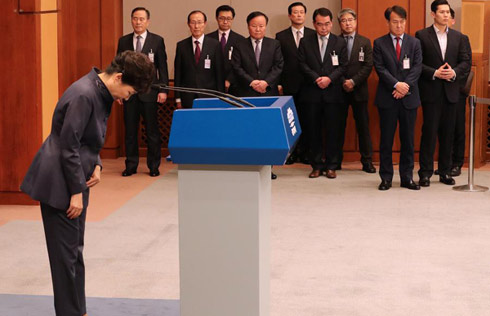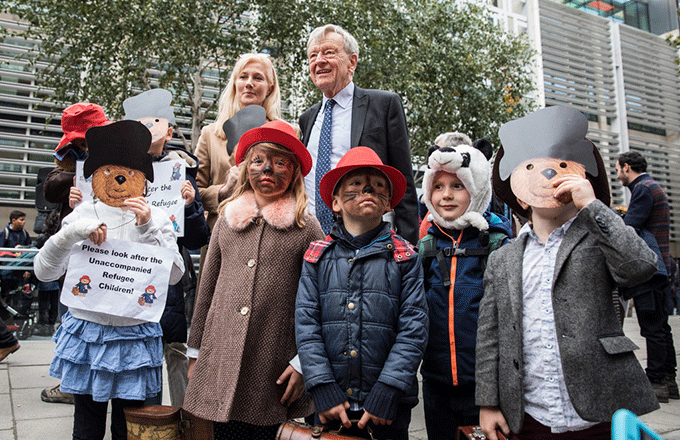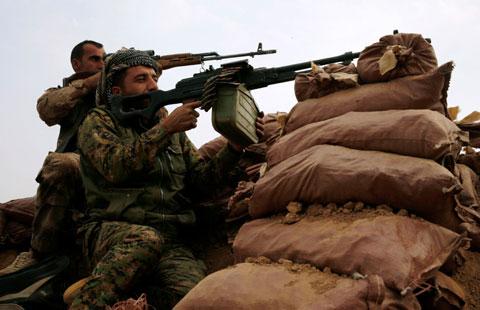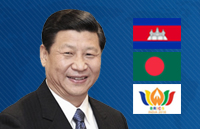UN adopts resolution urging end to Cuban embargo, US abstains for first time
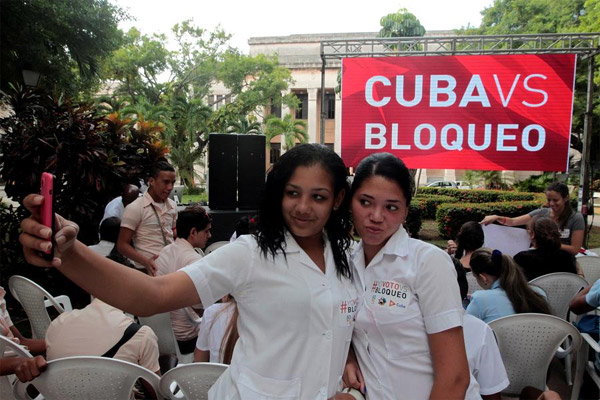 |
|
Students pose for a selfie in front of a screen which reads "Cuba versus the blockade" during an event at the Havana's University in Havana, Cuba, October 26, 2016. [Photo/Agencies] |
UNITED NATIONS - The UN General Assembly on Wednesday voted overwhelmingly to adopt a resolution urging an end to U.S. embargo on Cuba, and the United States abstained for the first time in 25 years.
Altogether 191 UN member states voted in favor of the resolution, while the United States and Israel abstained.
It is the 25th time that the UN General Assembly has adopted such a resolution. This year, there is a change in vote of the United States since it voted against in the past 24 votes.
Full diplomatic ties were restored between the United States and Cuba as an agreement to resume normal relations took effect on July 20, 2015. However, the United States has not repealed the embargo yet.
The resolution welcomed the progress in relations between the two countries and the visit of the U.S. President Barack Obama to Cuba in March 2016.
It also noted that "the steps taken by the United States Administration towards modifying some aspects of the implementation of the embargo, which, although positive, are still limited in scope."
Therefore, the General Assembly once again urged the repeal of the blockade measures as soon as possible, said the resolution.
Bruno Rodriguez Parrilla, foreign minister of Cuba, told the General Assembly that "the economic, commercial and financial blockade imposed by the United States against Cuba persists, seriously harming the Cuban people and impairing the country's economic development."
"Lifting the blockade is the key to be able to advance towards the normalization of relations with the United States; it is what will give some meaning, depth and soundness to what has been achieved so far," he said.
While ahead of the vote, U.S. Ambassador to the UN Samantha Power said the U.S. abstention is due to Obama's new approach to Cuba, but it does not mean that the United States agrees with all of the policies and practices of the Cuban government.
Washington decreed the blockade against Havana officially on Feb. 3, 1962, following the intensification of the political differences that emerged between the U.S. and the Cuban government led by Fidel Castro.





